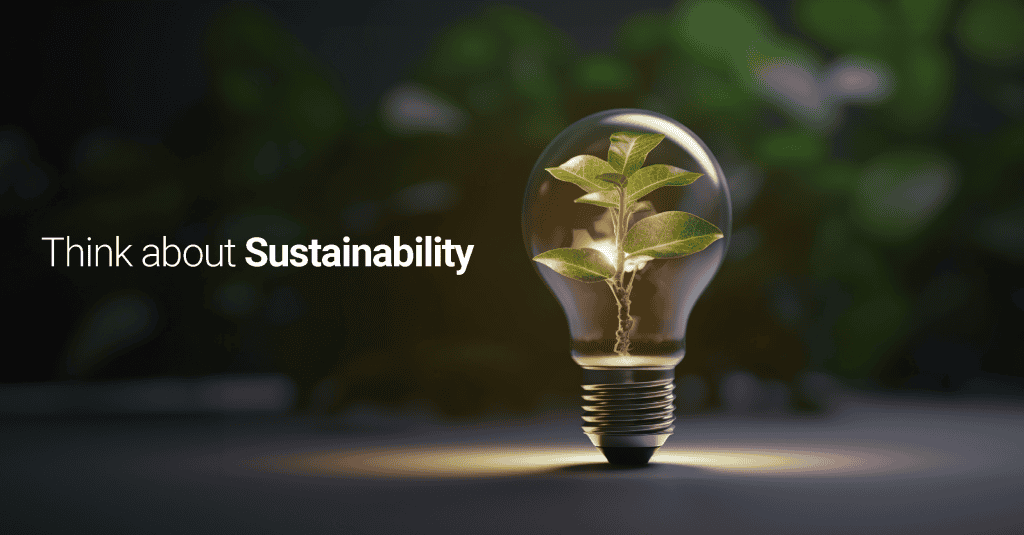
Did you know that automation and sustainable practices can greatly impact the environment?
From reducing waste to conserving energy, these technologies are helping to create a greener planet for future generations.
Discover the technology solutions that is driving us to a sustainable future:
The Impact of Automation on Sustainability
Reduced Waste:
- Precision Manufacturing: Automation allows for more precise manufacturing processes, minimising material waste. This includes techniques like 3D printing and computer-controlled machining, which use only the necessary amount of material.
- Optimised Production: Automated systems can monitor and adjust production processes in real-time, reducing overproduction and defects that lead to waste.
Energy Conservation:
- Smart Systems: Automated systems can optimise energy use by adjusting lighting, heating, and cooling based on occupancy and usage patterns. Smart grids and automated energy management systems can also balance energy loads more efficiently.
- Predictive Maintenance: Automation enables predictive maintenance, which helps in identifying and fixing equipment issues before they lead to energy inefficiencies or failures, thus conserving energy.
Resource Management:
- Water Use: Automated irrigation systems in agriculture use sensors to monitor soil moisture levels and weather forecasts, ensuring that water is used efficiently and only when necessary.
- Material Recycling: Automation in recycling facilities can sort materials more accurately and efficiently than human labour, leading to higher recycling rates and less material sent to landfills.
Sustainable Practices in Production
Renewable Energy Integration:
- Solar and Wind Power: Manufacturing plants are increasingly integrating renewable energy sources such as solar and wind. Automation can help manage the variability of these energy sources, ensuring a stable supply.
- Energy Storage Solutions: Automated energy storage systems can store excess energy generated during peak production times and release it when needed, reducing reliance on fossil fuels.
Circular Economy Models:
- Design for Reuse: Products are being designed with their entire lifecycle in mind, making them easier to disassemble, repair, and recycle. Automation plays a key role in the disassembly and recycling processes.
- Closed-Loop Manufacturing: Waste materials from one production process can be repurposed in another. Automation helps track and manage these materials efficiently.
Sustainable Supply Chains:
- Traceability: Automation enables better traceability of materials throughout the supply chain, ensuring they are sourced sustainably and ethically.
- Efficiency: Automated logistics systems optimise routes and loads, reducing fuel consumption and emissions.
Energy Efficiency in Production
Energy-Efficient Equipment:
- Upgrading Machinery: Investing in modern, energy-efficient machinery can significantly reduce energy consumption. Automation ensures these machines operate at their optimal performance.
- Variable Speed Drives: Using variable speed drives on motors allows for adjustments in power usage based on real-time demand, cutting down on wasted energy.
Process Optimisation:
- Lean Manufacturing: Automated systems help implement lean manufacturing principles, which focus on eliminating waste and improving efficiency. This includes just-in-time production and continuous improvement practices.
- Energy Audits: Automation can facilitate regular energy audits by continuously monitoring energy use and identifying areas for improvement.
Building Automation:
- Smart Factories: The concept of smart factories involves IoT (Internet of Things) devices and automated control systems to manage energy use in real-time, optimising heating, cooling, and lighting systems.
- Energy Management Systems: These systems integrate with production processes to ensure energy is used as efficiently as possible, often leveraging AI and machine learning to predict and adjust for energy needs.
Food for Thought
Integration of automation and sustainable practices is essential for reducing environmental impact and ensuring a sustainable future. By adopting these technologies, industries can significantly lower their carbon footprint, reduce waste, and improve energy efficiency.
It’s a collaborative effort that requires continuous innovation and commitment to green practices.
Discover Siemens tech that drives Energy Efficiency
Join us at Siemens Transform 2024
Discuss Further
If you wish to explore further how Parmley Graham can help with your automation needs, complete your details and we’ll be in touch:


